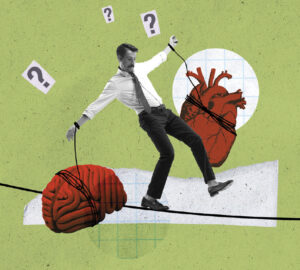It’s a fairly well-known fact that women are likely to live longer than men. Studies have shown that men are more likely to engage in risky behaviors and are less likely to adopt preventative health measures. This leads to more deaths from several diseases, including cancer. For Men’s Health Month, we’re looking at two common types of cancer in men. By knowing your risk, you can take action and lead a happier, healthier and longer life.
Prostate Cancer
Prostate cancer is the fourth most commonly diagnosed cancer in the world. The American Cancer Society estimates that in 2023 there will be more than 288,000 new cases diagnosed and around 34,700 deaths from the disease. The average age of diagnosis is 66, and it is rare in men under the age of 40. While it is more likely to impact non-Hispanic Black men, one in every eight men will be diagnosed with prostate cancer in his lifetime. Early detection of prostate cancer is important for ensuring treatment is successful.
In its early stages, prostate cancer has no symptoms, and once symptoms manifest, they overlap with a number of non-cancerous conditions, making screening essential. The disease is often discovered during regular checkups that include rectal exams and prostate-specific antigen (PSA) tests. The latter is a blood test that looks for increased amounts of PSA, a substance produced in the prostate. While a small amount in your blood is normal, higher levels may indicate an issue, such as infection, inflammation, enlargement or cancer.
symptoms of prostate cancer
- Trouble urinating or decreased force in the stream of urine
- Blood in the urine or semen
- Bone pain
- Weight loss without trying
- Erectile dysfunction
prostate cancer prevention
- Get your prostate checked annually after age 55. Your doctor may recommend starting regular screening at age 40, depending on your personal risk factor.
- Watch your diet. Research has shown that high fat diets lead to a greater risk of prostate cancer. Foods that have been shown to reduce risk include fruits, vegetables, green tea and soy.
- Watch your weight. Obesity may be a contributing factor to many different cancers.
- Stay active. Exercise can reduce inflammation and improve immune function, reducing the risk of cancer.
- Know your family history. Your risk of prostate cancer is higher if it runs in your family.
- Drink in moderation and don’t smoke. There are many health benefits to quitting smoking, including lowering cancer risk. While some studies suggest that the antioxidants in wine could be beneficial, it is best to limit your alcohol intake.
- Drink a lot of water. This helps flush out your bladder.
- Stay sexually active. Studies have indicated that men who have a higher frequency of ejaculation (with or without a sexual partner) were up to 66% less likely to be diagnosed with prostate cancer. Some experts theorize that it clears the body of toxins and other things that cause inflammation.
Testicular Cancer
Testicular cancer is the most common cancer affecting men between the ages of 15 and 35. The first sign of the disease is often a lump on either testicle. Since the cancer grows quickly, it often spreads to other parts of the body. Luckily, even if it spreads, it often is treatable through surgery or chemotherapy.
The causes of testicular cancer are largely unknown. It is understood that the onset of the disease occurs when something causes a change to the DNA of testicle cells. That change makes cells grow and multiply quickly. While healthy cells die as part of their natural life cycle, the cancer cells go on living. This buildup of cells in the testicle is what causes the formation of a tumor. Since it is unknown why this change to the DNA happens, there is not much that can be done for prevention. Some health care experts recommend regular self exams so that you can recognize any new lumps or other changes.
While the causes of the disease are unknown, there are risk factors associated with testicular cancer. It most commonly occurs in white young adults and in people with a family history of testicular cancer. Cryptorchidism, or an undescended testicle, also is a risk factor. The increased risk remains even if you have had surgery to address the problem.
testicular cancer symptoms
- A lump or swelling in either testicle
- A feeling of heaviness in the scrotum
- A dull ache in the lower belly or groin
- Sudden swelling in the scrotum
- Pain or discomfort in a testicle or the scrotum
- Enlargement or tenderness of the breast tissue
- Back pain
Sources: John Hopkins Medicine, Mayo Clinic, American Cancer Society








